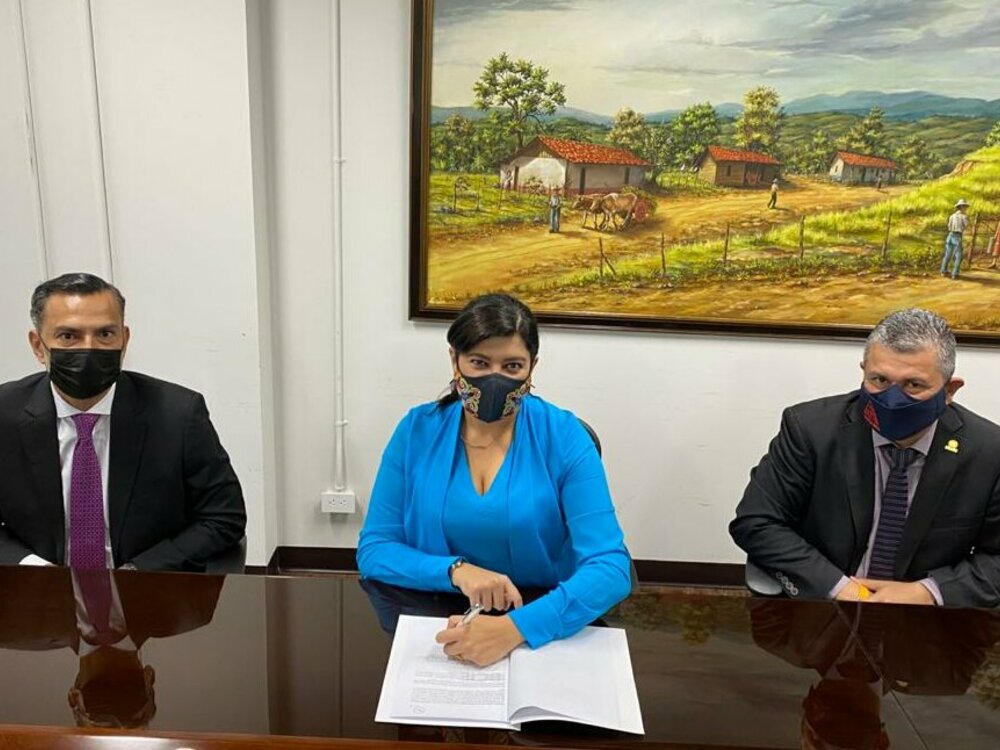Costa Rica receives US$500,000 donation from CABEI to support pandemic relief efforts

The funds were transferred to the National Emergency Commission (CNE) and will be used for the development of prevention and response actions in response to the covid-19 health emergency.
San José, March 18, 2021. - As part of the support provided by the Central American Bank for Economic Integration (CABEI) to its member countries in the containment of the pandemic and economic recovery, this Thursday the Republic of Costa Rica received a new donation for US$500 thousand.
The resources of this non-refundable financial cooperation will be transferred in a single tranche to the National Emergency Commission (CNE), which will be able to use them for activities related to the Covid-19 emergency.
CABEI's Governor in Costa Rica, Mrs. María del Pilar Garrido Gonzalo, Minister of National Planning and Economic Policy, who participated in the signing ceremony of the donation contract, said: "I am deeply grateful for CABEI's support as a strategic ally during the COVID-19 pandemic, particularly because in cases like this one it has allowed us to expand the purchase of vaccines for the protection of the population, especially the most vulnerable, but it has also enabled conditions for economic reactivation.
"This donation is in addition to the many other initiatives that CABEI has provided in support of Costa Rica to confront the pandemic since it began, such as the donations of $1 million and medical implements and supplies at the beginning of the pandemic, the approval of resources for the Guarantee Fund and from the private sector through financial institutions, as well as the US$80 million loan recently approved for the purchase and acquisition of the vaccine," said CABEI Executive President, Dr. Dante Mossi.
For his part, the President of the CNE, Alexander Solís Delgado, expressed his gratitude for the second non-reimbursable financial cooperation provided by CABEI, which contributes to the development of prevention and response actions in response to the health emergency caused by the pandemic.
He explained that the CNE used the first donation to purchase supplies for hand and surface disinfection, as well as personal protective equipment and products for officials of institutions that are on the front line of care for the vulnerable population (elderly, people with disabilities, people living on the streets, positive people in isolation, people with suspended or reduced work contracts, among others).
At the end of February, CABEI's Board of Directors approved this new non-reimbursable financial cooperation for US$4.0 million to provide US$500,000 to Guatemala, El Salvador, Honduras, Nicaragua, Costa Rica, Panama, Belize and the Dominican Republic, respectively.
This initiative is part of CABEI's "Human Development and Social Inclusion" strategic axis, which seeks to generate social capacities to achieve the objective of improving well-being and quality of life in the Central American region.



